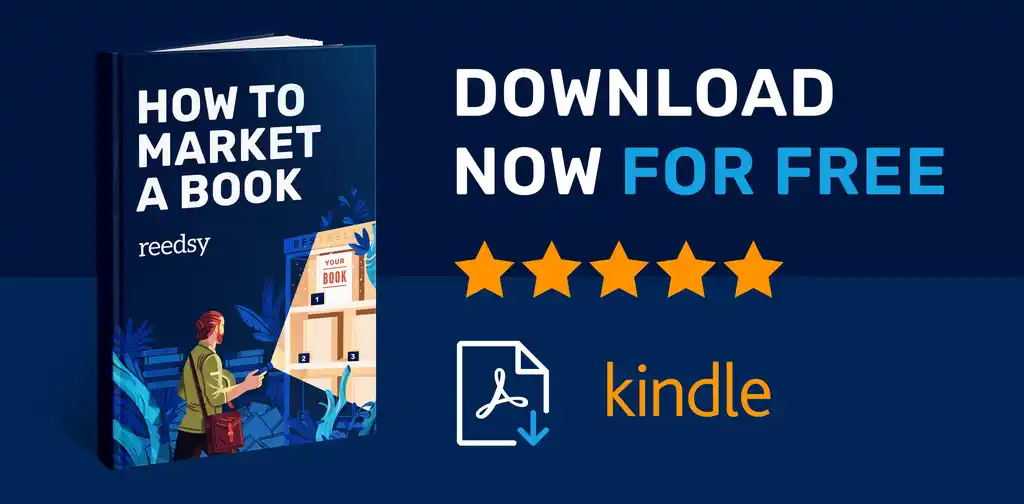Guides • Understanding Publishing
Posted on Aug 03, 2021
The Ultimate Guide to Audiobook Distribution
Unlike the ebook revolution, which saw Amazon dominate the digital book market since the very beginning, the global rise in audiobooks has been much more fragmented and multifaceted.
While Amazon (and its audiobook distribution and retail arm, Audible) have been at the forefront of the market, a Codex Group study from 2018 revealed they only make up 41% of the total audiobook market share in the US. The other 59% is split between a mix of retailers, including:
- Apple Books;
- Kobo/Walmart;
- Google Play;
- Subscription services like Scribd; and
- Libraries.
With this market fragmentation in mind, figuring out the right audiobook distribution path becomes all the more important.
In this final part of our guide to publishing audiobooks, we’ll explore all the different distribution opportunities available to authors, from various options offered by Audible (who will — spoiler alert — try to lure you into exclusivity) to wide distribution via audiobook aggregators like Findaway Voices.
Audiobook distribution through ACX: higher royalties on Audible
ACX (Audiobook Creative Exchange) is Audible’s self-serve production and distribution service. For a long time, it was the only option available to indie authors looking to publish their audiobooks, and it is still one of the most widely used distribution services.
As opposed to the other distributors we’ll explore later, ACX only distributes to three main outlets:
- Amazon
- Audible
- Apple Books (previously iTunes)
Much like the Amazon self-publishing platform, Kindle Direct Publishing, (and its KDP Select scheme), ACX offers authors two options for distribution:
- Being exclusive to ACX. This option prevents you from distributing or selling your audiobook through any other channel — whether that’s another retailer, a subscription service, directly on your website, or even in physical CD form. In exchange for your exclusivity, ACX pays you a royalty rate of 40% of the list price.
- Not being exclusive to ACX. This allows you to distribute your audiobook elsewhere in any form you want but your royalty rate will only be 25% of the list price on ACX.
Note: if you choose to produce your audiobook under a royalty-share model with the narrator on ACX, you will automatically be enrolled in the exclusivity option — and will not be able to get out of it unless you “buy out” your narrator.
ACX’s narrowing exclusivity period
However, the big difference between KDP Select and ACX exclusivity is the length of the exclusivity period. While KDP Select renews every 90 days, ACX/Audible contracts are for seven years — a constant bone of contention among indie authors.
That said, ACX recently changed its terms and now allows authors who own the full rights to their audiobook to get out of exclusivity after 90 days (similar to KDP Select). Again, this doesn't apply to books produced under a royalty-share agreement.
ACX pricing and royalties
Whether you're exclusive or not, there's one crucial element you won't be able to control on ACX: your audiobook's price.
Each retailer reached by ACX is free to price or discount your audiobook at their sole discretion. Generally, that price is on your audiobook's length, and ACX provides the following ballpark breakdown of the pricing you can expect for your audiobook on Audible.
- < 1 hour: under $7
- 1 - 3 hours: $7 - $10
- 3 - 5 hours: $10 - $20
- 5 - 10 hours: $15 - $25
- 10 - 20 hours: $20 - $30
- 20+ hours: $25 - 35
So your revenue on audiobook sales will basically depend on two main factors: 1) your audiobook's length; and 2) whether you're exclusive with ACX. Here's an example for a 10-hour audiobook:
|
ACX (Exclusive) |
ACX (Non-exclusive) |
|
|
Audiobook price |
$20 (automatically set by Audible based on length) |
$20 (automatically set by Audible based on length) |
|
Retailers reached |
Amazon Audible Apple Books |
Amazon Audible Apple Books |
|
Royalty rate |
40% |
25% |
|
Earnings per sale |
$8 (or $4 in case of 50% royalty share with the narrator) |
$5 |
Losing $3 on every audiobook you sell is a bitter pill to swallow, so you don't want to rush any decision to go exclusive.
ACX reporting and #audiblegate
In reality, audiobook sales reporting via ACX is a little more complicated than the table above. Most Amazon Audible customers don't buy audiobooks at their retail price. Instead, they use Audible's subscription service ($14.95 a month in the US), granting them one credit a month. Users can redeem a credit for any title on the store — and the publisher is paid in full, based on the audiobook's list price.
So far, so good.
Here's the rub: Audible has a "no-questions-asked" return policy, through which any Audible Premium Plus customer can simply "return" an audiobook for a credit or exchange it for another title — no matter how much of the audiobook they've already listened to. In those cases, the publisher loses the royalty on the returned audiobook.
In October 2020, a reporting glitch on ACX dashboards showed — for the first time — the number of audiobook returns on top of the sales, which in some author's cases was over 50% of their sales. By digging further, some authors found out that Audible customer service was actively encouraging listeners to use the return feature to access more than one audiobook a month, leading to a movement called #audiblegate.
ACX has since made some changes to its dashboard and vowed to document "returns" and payment deductions. However, getting a clear, full picture of orders, returns, and final royalties is still next to impossible — which has led more and more authors to move away from ACX and explore other distributors instead.
Wide distribution: reach more retailers and retain control
In the past few years, several other audiobook distributors have emerged. Many of them offer authors a strong alternative to Amazon ACX and greater reach into hundreds of audiobook retailers, subscription services, and libraries.
Naturally, this means forfeiting ACX's exclusivity option and thus earning 25% on Audible sales (minus the distributor's) cut. This can be a significant risk if most of your audiobook income comes from Audible — but considering the diversity and fragmentation of the audiobook landscape, it's more often worth it than not.
The benefits of wide audiobook distribution
Greater reach
The first obvious benefit of "wide audio distributors" is that they reach many more storefronts, subscription services, and libraries than ACX. Findaway Voices, in particular, reaches over 40 different outlets.
And while most of these outlets are naturally much smaller than Amazon, Audible, or Apple Books in the US, the picture is very different in other countries. Storytel, for example, is the leading audiobook subscription service in Europe, and Kobo's subscription service enjoys the same in Canada.
Finally, while often overlooked, libraries can play a big role in audiobook discoverability and revenue — with many Findaway Voices authors reporting they make up over one-third of their audiobook income on the platform.
Price control
One of the leading marketing strategies used by indie authors to promote their books is running "price promotions," i.e., discounting for a short period and enticing readers to take a chance on them at the lower price point.
Previously, authors couldn't run promos on audiobooks, as ACX/Audible controlled their prices. With wide audiobook distributors, though, you can choose your own retail price — which all non-Amazon retailers will respect.
This opens up a whole new world of opportunities: discounted/free first-in-series, free prequel novellas, limited-time discount promotions, discounted audio box sets, etc.
Access to Chirp
If you're not familiar with Chirp, it is BookBub's sister site for audiobook deals. Every day, Chirp handpicks selected audiobook deals and promotes them to their growing list of listeners.
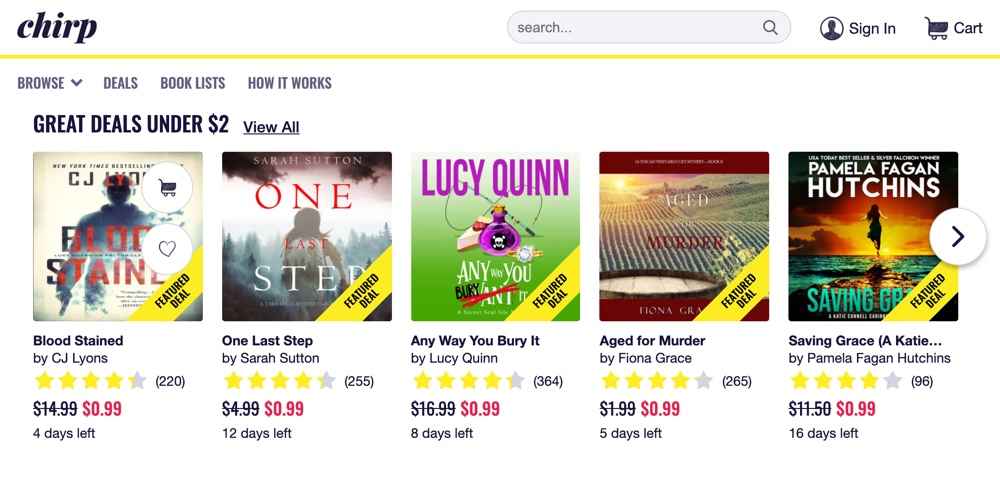
Unlike BookBub Featured Deals, which can cost several hundred dollars, Chirp featured deals are currently free for authors — and have already proven to work exceptionally well to boost sales.
To submit your audiobook for a Chirp deal, you need to make sure that:
- It's available for sale on Chirp (which you can only achieve through Findaway Voices); and
- The discount price is lower than the audiobook's listed retailer price.
According to Will Dages from Findaway Voices, Chirp is by far their fastest-growing retailer, and that can be a good enough reason on its own to favor Findaway Voices over other distributors.
The different audiobook distributors
Findaway Voices
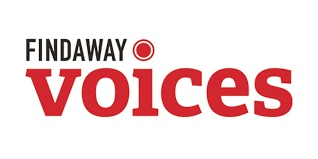 We mentioned Findaway a few times already in this post, and for a good reason. They're the leading non-ACX audiobook distributor, both in terms of titles distributed and the number of outlets reached. In 2022, they were acquired by Spotify.
We mentioned Findaway a few times already in this post, and for a good reason. They're the leading non-ACX audiobook distributor, both in terms of titles distributed and the number of outlets reached. In 2022, they were acquired by Spotify.
Their distribution network reaches over 170 countries around the world, and they offer seamless integration with Draft2Digital so you can carry over your metadata instead of re-entering it from scratch. Now that they're owned by Spotify, your audiobook will be able to reach Spotify through Findaway. You can also pick-and-choose which outlets you want to distribute to through Findaway, so you could, for example, use them in tandem with ACX (as long as you're not exclusive).
Similar to ACX, they also offer audiobook production services.
Royalties
Findaway Voices offer authors 80% of the royalties they receive from their distribution partners.
The actual royalty can vary greatly depending on the partner's retail model (straight sale vs subscription service, library, etc.). Still, most non-Amazon major retailers pay between 40% and 50% of list price. After Findaway's distribution cut, this represents a net royalty for the author of 32%-40% of list price.
For sales through Amazon/Audible, Findaway will receive 25% of the list price. This means authors will earn a net royalty of 25% of 80%. This adds up to 20% of list price — or half of what they'd make if they were exclusive to ACX.
ListenUp
 ListenUp audiobooks have been around for longer than Findaway Voices, have a similar distribution reach and royalty model to Findaway's, and also offer audiobook production services, albeit at a slightly higher cost/hour than the average one on Findaway Voices.
ListenUp audiobooks have been around for longer than Findaway Voices, have a similar distribution reach and royalty model to Findaway's, and also offer audiobook production services, albeit at a slightly higher cost/hour than the average one on Findaway Voices.
ListenUp charges a $149-$199 upfront fee per title for distribution — which they waive for titles produced through ListenUp. This, and the fact you can't get your ListenUp audiobooks into Chirp, make them a slightly less attractive option, unless you use them for production as well.
Royalties
ListenUp's royalty model is identical to Findaway's. They take a 20% cut on royalties received from retail partners, meaning authors will earn:
- 32%-40% of list price on most non-Amazon store sales
- 20% of list price on Amazon/Audible sales
Author’s Republic
 Author's Republic is another well-known audiobook producer and distributor. Users can create your audiobook by choosing from their vast roster of professional narrators, and then distribute it through their 50+ partner platforms.
Author's Republic is another well-known audiobook producer and distributor. Users can create your audiobook by choosing from their vast roster of professional narrators, and then distribute it through their 50+ partner platforms.
One thing to note is that Author's Republic accepts submissions from authors/publishers from any country in the world, and thus can be a good option for authors in countries not supported by the other major distributors.
Royalties
Author's Republic takes a large distribution cut (30%), resulting in lower net royalties for the author:
- 28%-35% of list price on most non-Amazon store sales
- 17.5% on Amazon/Audible sales
💸 Limited-time offer: Take home 80% of royalties on new audiobooks submitted for distribution between May 1 and July 31, 2024. Learn more.
PublishDrive
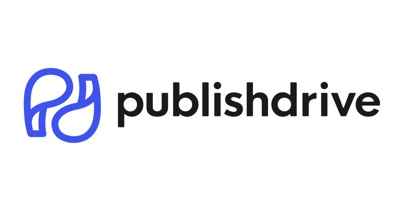 PublishDrive is the only aggregator in this list that also offers ebook and print-on-demand distribution — allowing authors to control all of their different formats' distribution from one place.
PublishDrive is the only aggregator in this list that also offers ebook and print-on-demand distribution — allowing authors to control all of their different formats' distribution from one place.
PublishDrive leverages Findaway's distribution network by distributing audiobooks to Findaway directly. They also reach CNEP Reading, the leading library content provider in China. It's important to distinguish between the outlets PublishDrive has a direct agreement with, and those reached through their partnership with Findaway, as the royalties will vary. You can view the complete list here.
Royalties
Their business model is entirely different from the above: instead of taking a cut on royalties, PublishDrive charges a monthly subscription fee and pays 100% of net royalties. The monthly fee depends on the number of titles you distribute with them — and each different format (ebook, print, audio) counts as a separate title.
Remember that since PublishDrive goes through Findaway to reach several outlets (like Apple Books, Barnes & Noble, Scribd, Bibliotheca, etc.), your royalty on these outlets will be the same as through Findaway.
Overall, we recommend Findaway Voices to most authors looking to publish their first audiobook. Still, you can view the main differences between these four audiobook distributors in the table below — along with the two ACX options.
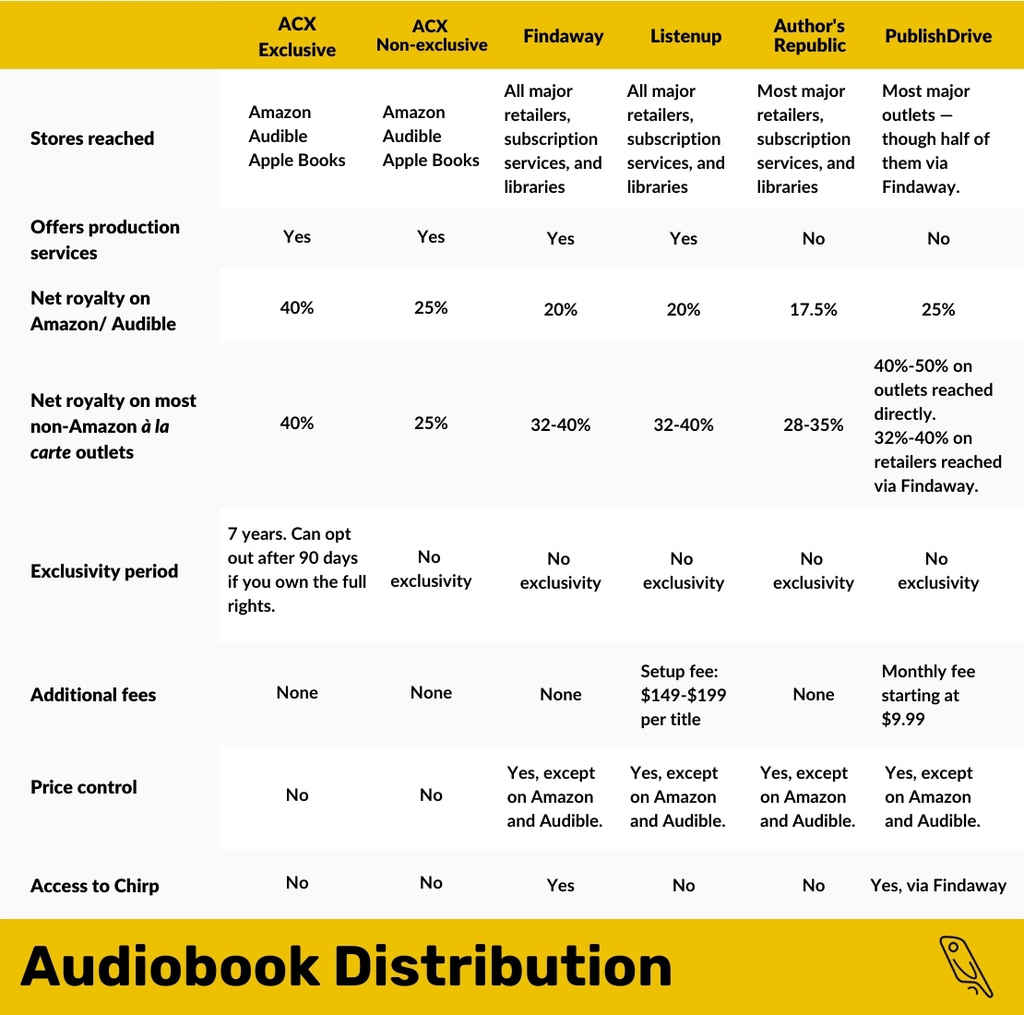
Note: we didn't include Kobo Writing Life as a distributor here, as they only distribute to Kobo's network of publishing and library partners (including Walmart, Indigo, Bol, Overdrive, on top of Rakuten Kobo). It can, however, be a good idea to use them to distribute directly to these outlets rather than through Findaway Voices (higher royalty).
Calculating your royalties on audiobook retailers
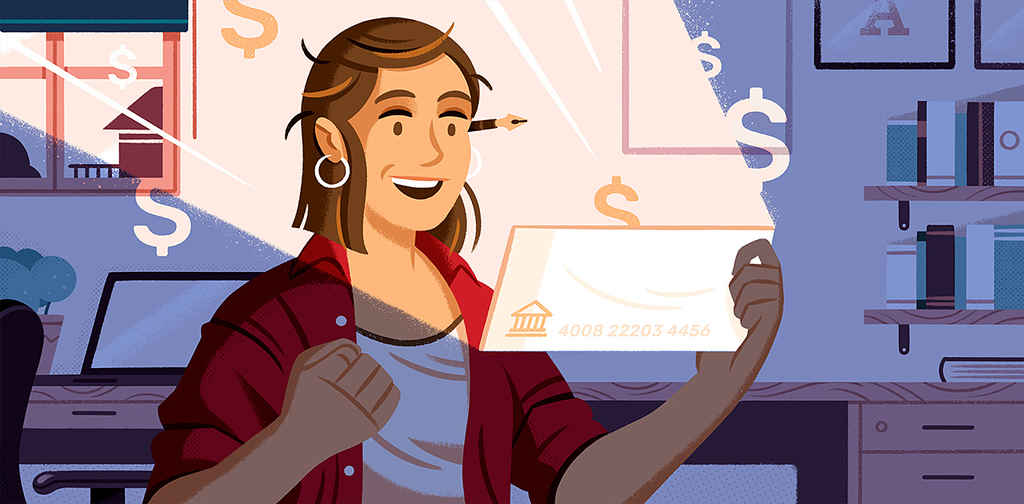 In the table above, we've compared the different levels of royalties offered by the leading audiobook distributors for a la carte sales — i.e., when a listener buys the audiobook at full price through one of the major retailers.
In the table above, we've compared the different levels of royalties offered by the leading audiobook distributors for a la carte sales — i.e., when a listener buys the audiobook at full price through one of the major retailers.
But the reality is that a la carte sales generally only represent a small part of the total audiobook income — the main one comes from subscription services and library sales.
To complicate things further, both subscription services and library distributors can operate under different models, from credit-based subscriptions and revenue pools to cost per checkout. Understanding those is the first step to understanding your audiobook royalty statements, so we'll try to shed some light on each of these models below.
Subscription services
- Credit-based subscription: listeners pay a monthly subscription fee to get "credits," which they can redeem against audiobooks. Authors earn the same royalty as an a la carte sale when their audiobook is purchased using credits.
- Unlimited subscription: listeners pay a monthly subscription fee to listen to as many audiobooks as they want. Authors earn the same royalty as an a la carte sale when a subscriber listens to 15% or more of their audiobook.
- Revenue pool share subscription: listeners pay a monthly subscription fee, contributing to a total "revenue pool." Authors receive a percentage of that revenue pool based on their pro-rata share of total listening time.
Libraries
- A la carte: libraries purchase a license to lend the audiobook to a maximum of one patron at a time. Authors earn a royalty based on their library price, which can often be more expensive than the retail price.
- Cost per checkout: libraries are granted a license to lend the audiobook to a maximum of one patron at a time. Authors are remunerated per checkout, i.e., every time a patron borrows the audiobook. The pay per checkout varies based on the library distributor and is either a function of the audiobook's length (Hoopla) or its library price (all other cost-per-checkout distributors).
If you want to go into even more detail, we've compiled the exact royalties authors can expect through Findaway on each retailer, subscription service, or library, under every possible model, in a simple spreadsheet. You can check it out here.
Note: The spreadsheet was last updated in July 2021. Findaway may have since added other outlets, and royalty rates and distribution models may have changed. You can view the exact, up-to-date figures in your distribution agreement with them.
As you can see, there are hundreds of different outlets and options for readers to find and listen to audiobooks. And with the continued growth of the audiobook market, one can only expect more players to enter the market, experiment with different models, and contribute to a balanced, competitive audiobook market — which at the same time is easy to reach all at once through aggregators like Findaway Voices.
For the final part of our guide, we'll share some top ideas for marketing your audiobook. Let's get the word out!

